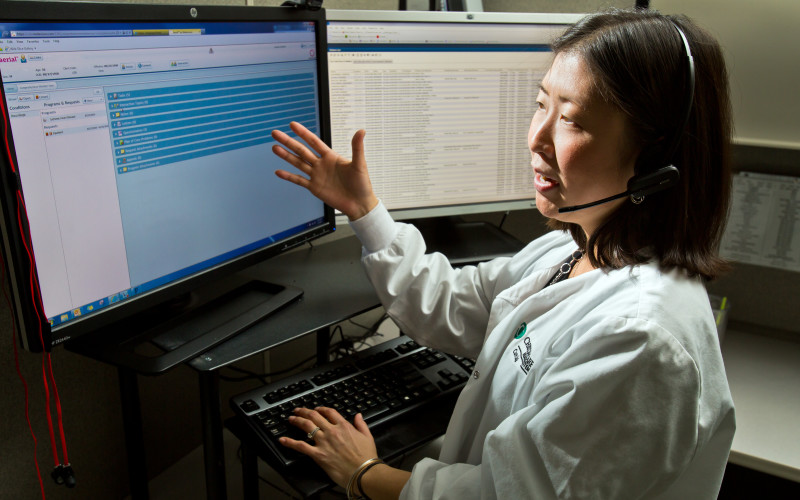Bridging the Divides now fully integrated with Delaware Health Information Network

Christiana Care’s transformative Bridging the Divides program, which helps patients with ischemic heart disease to transition successfully from hospital care and improve their long-term health, has achieved a historic milestone. The program is now fully integrated with the Delaware Health Information Network.
This monumental achievement means that care managers under the Bridges program can obtain instant updates on any new medical information at any time from any one of the 3,000 patients in the Bridges program — in any place within the state of Delaware.
For example, if a patient undergoes a blood draw in Lewes, enters an urgent-care center in Smyrna or visits a specialist in Claymont, care managers with the Bridges program are immediately notified and can proactively make changes to their care plan.

“This is by far the most innovative step in the development of Bridges,” said Terri Steinberg, M.D., MBA, chief medical information officer for Christiana Care. “We are now able to act on data that’s generated both within our walls and anywhere in the state of Delaware outside our walls.”
The Bridges program evaluates Delawareans who suffer from ischemic heart disease, which occurs when the arteries that supply blood to the heart muscle become hardened and narrowed. This buildup results in a lack of oxygen or blood flowing to the heart and can lead to chest pain and heart attacks. Over time, ischemic heart disease can weaken the heart muscle and can contribute to heart failure and arrhythmias.
This new milestone in Bridges represents significant progress toward the fundamental goals of the program of achieving medicine’s Triple Aim: better health, better health care and reduced costs.

“This technological breakthrough is vital to the creation of a new standard of care delivery,” said Randall Gaboriault, chief information officer and senior vice president of innovation and strategic development at Christiana Care, and chair of the Delaware Health Information Network. “Bridges has now accomplished the goal of advancing information through pioneering technology to enable preemptive intervention in the lives of patients who would otherwise be at risk of readmissions and the costs and disruptions they produce.”
Created through a public/private partnership in 1997, DHIN is the first operational statewide health information exchange in the nation. DHIN creates efficiencies for hospitals, doctors, practices and other health care providers who send and receive clinical information. Because the DHIN functions as a data collector for all Delaware hospitals and collects more than 92 percent of lab results statewide, health care professionals already are capable of accessing the most current, critical information on patients.
Bridges is an initiative led by Christiana Care and funded, in part, by a three-year, $10 million award from the Center for Medicare and Medicaid Innovation (CMMI). Bridges was selected as one of only 107 projects chosen by CMMI from a nationwide pool of 3,000 applications.
Through the project, Christiana Care uses big data-plying technology powerful enough to tap into all available sources of data — including clinical activity, lab results and pharmaceutical use — on each individual patient to unearth relevant predictive patterns and facts to improve patient care. Christiana Care uses the information provided through this technology to ensure patients can safely transition from acute-care settings to their homes for follow-up care.
The project also uses a care-management technology platform that provides care coordinators with a comprehensive, up-to-date snapshot of each patient’s health status. Care coordinators leverage the accredited clinical content and streamlined workflow through this platform to manage transitions in care, customize treatment plans for individual patients and equip them with the information they need to take control of their own health.